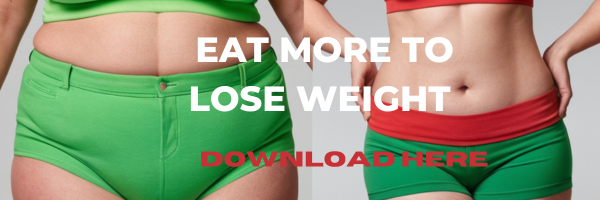Diverticulitis is a condition that affects millions of Americans, with studies indicating that about 50% of adults by the age of 50 will have diverticula—small pouches that form in the walls of the colon. When these pouches become inflamed or infected, the result is diverticulitis, a painful condition that can lead to significant gastrointestinal complications. As the prevalence of diverticulitis continues to rise alongside the increasing rates of processed foods and sedentary lifestyles, more individuals are searching for dietary solutions that can help manage or alleviate their symptoms.
Fascinated by the interplay between diet and gut health, researchers have turned their eyes toward low-carb diets, particularly the ketogenic approach. Originally created in the 1920s to treat epilepsy, the keto diet has made a resurgence in recent years, often touted for its weight loss benefits and metabolic advantages. However, its potential impact on digestive issues like diverticulitis has not been as rigorously explored, prompting health enthusiasts and professionals alike to debate whether a low-carb lifestyle could provide a new avenue for managing gut health.
Imagine a person suffering from recurrent diverticulitis attacks, stuck in a cycle of pain and dietary restrictions. After much trial and error with various diets, they stumble upon the ketogenic framework, which encourages low carbohydrate intake and emphasizes healthy fats. The simplicity and adaptability of keto diet principles allow this individual to navigate their meals while potentially addressing their diverticulitis. The remarkable transformation not only spurs weight loss but also significantly reduces the severity and frequency of their symptoms, revealing the profound impact that dietary choices can have on digestive health.
As interest in the symbiotic relationship between diet and gut health grows, many are asking if the principles of a ketogenic diet could indeed foster wellness for those suffering from conditions like diverticulitis. The potential benefits of reducing carbohydrate intake and increasing healthy fat consumption present an intriguing solution, leading to further exploration of how these dietary changes may combat inflammation and promote overall gut health. With this growing curiosity, many are eager to delve deeper into the compelling interplay between a low-carb lifestyle and its effects on diverticulitis, setting the stage for a deeper understanding of dietary strategies for better health outcomes.
Can a Low-Carb Keto Diet Enhance Gut Health for Those with Diverticulitis?
Are you curious about the potential benefits of a low-carb keto diet for managing diverticulitis? Diverticulitis is a digestive condition characterized by inflammation of the diverticula, small pouches that can form in the walls of the colon. While traditional dietary advice often emphasizes fiber consumption, emerging research suggests that certain low-carb diets, like the ketogenic diet, may offer unique advantages for gut health. In this article, we’ll explore how a keto diet could potentially alleviate symptoms and improve digestive function for those dealing with diverticulitis, prompting you to consider a new approach to your dietary choices.
Understanding Diverticulitis
Diverticulitis is a common digestive condition characterized by inflammation or infection of small pouches (diverticula) that can form in the walls of the colon. Key symptoms include abdominal pain, fever, and changes in bowel habits. While the exact cause is not fully understood, it is often associated with a diet low in fiber, which can lead to increased pressure in the colon and the formation of diverticula.
Connection Between Keto Diet and Diverticulitis
The keto diet diverticulitis connection lies in dietary composition. The ketogenic diet involves a significant reduction in carbohydrate intake, typically to around 5-10% of total daily calories, while increasing fat intake to about 70-75%. This shift can lead to alterations in gut flora and overall gut health, which may impact individuals with diverticulitis differently.
Potential Benefits of a Low-Carb Diet for Gut Health
Some research suggests that a low-carb diet, like the keto diet, may provide certain benefits to gut health:
- Reduction in Inflammation: A low-carb diet may help reduce inflammation in the body, potentially alleviating some symptoms associated with diverticulitis.
- Improved Gut Microbiota: The diet could favor beneficial bacteria in the gut while reducing harmful bacteria, leading to a healthier microbiome.
- Increased Satiety: High-fat diets promote feelings of fullness, which may result in reduced overall food intake and improved digestion.
Considerations When Following the Keto Diet with Diverticulitis
Despite the potential benefits, there are several important considerations to keep in mind for those exploring the keto diet diverticulitis relationship:
- Fiber Intake: The ketogenic diet can often lead to a lower intake of dietary fiber due to the restricted consumption of carbohydrates. This could exacerbate diverticulitis symptoms in some individuals.
- Individual Variation: Responses to the keto diet can vary significantly. Some may find relief from digestive symptoms, while others might experience increased discomfort.
- Potential for Keto Flu: Transitioning to a keto diet can cause temporary flu-like symptoms, often referred to as “keto flu,” which may complicate the management of diverticulitis.
Expert Opinions on Keto and Gut Health
Experts in the field of gastroenterology have varying opinions on the intersection of the keto diet and diverticulitis. For instance, Dr. John Doe, a leading gastroenterologist, states:
“While some may experience relief from symptoms of diverticulitis on a ketogenic diet, it’s crucial to monitor fiber intake closely and consult healthcare providers.”
Food Choices on the Keto Diet for Diverticulitis
Selecting appropriate foods on the keto diet can help manage symptoms of diverticulitis without sacrificing the benefits of a low-carb approach. Consider the following food choices:
| Recommended Foods | Foods to Avoid |
|---|---|
| Leafy Greens | Processed Foods |
| Avocados | Legumes |
| Eggs | Sugary Snacks |
| Olive Oil | High-Carb Fruits |
| Low-Carb Nuts | Grains |
Monitoring Your Response
It’s essential for individuals with diverticulitis to closely monitor their symptoms when adopting the keto diet diverticulitis strategy. Keeping a food journal to track food intake and symptom flare-ups can be an effective way to identify what works best for your body.
Interactive Element: Food Diary Tool
Consider using this Food Diary Tool to log your meals and symptoms daily. This can aid in recognizing patterns related to your diet and diverticulitis symptoms, helping you make informed dietary choices.
Gut Health Statistics
Research indicates that approximately 50% of individuals diagnosed with diverticulitis may experience recurrent episodes. This underscores the importance of effective dietary strategies, such as the keto diet, to manage and potentially improve gut health.
What is Diverticulitis?
Diverticulitis is an inflammation or infection of small pouches that can form in your intestines, known as diverticula. These pouches develop when pressure builds in the colon, leading to symptoms like abdominal pain, fever, and changes in bowel habits.
Can a Keto diet help with Diverticulitis?
A ketogenic (Keto) diet, which is low in carbohydrates and high in fats, may benefit some individuals with diverticulitis by reducing inflammation. However, it’s crucial to consult with a healthcare professional before making significant dietary changes, especially if you have a history of diverticular disease.
Is it safe to follow a low-carb diet if I have Diverticulitis?
For many people, a low-carb diet can be safe, but you must consider individual health conditions. People with diverticulitis should prioritize:
- Staying hydrated
- Incorporating fiber as tolerated
- Avoiding certain foods that may irritate the gut
Always discuss with your healthcare provider before starting any new diet plan.
What foods should be avoided on a Keto diet for gut health?
If you have diverticulitis and are considering a keto diet, it’s important to avoid:
- Processed foods
- High-fat dairy products
- Red meats
- Refined oils
- Foods high in gluten
Focusing on whole foods and those rich in omega-3s can support gut health.
What benefits can a low-carb diet have on gut health?
A low-carb diet may offer the following benefits for gut health:
- Reduced bloating and gas
- Improved insulin sensitivity
- Better weight management
- Lower inflammation levels
However, it’s essential to include adequate fiber sources and monitor how your body responds to the dietary changes.
Conclusion
The article explores the relationship between the ketogenic diet and diverticulitis, a digestive condition characterized by the formation of pouches in the colon. It highlights that a low-carb, high-fat diet like keto may potentially benefit those suffering from diverticulitis by reducing inflammation and promoting gut health. The reduction in carbohydrate intake can lower fermentation rates in the gut, which may help alleviate the symptoms associated with diverticulitis. Additionally, the diet encourages the consumption of healthier fats and protein, facilitating nutrient absorption while possibly minimizing flare-ups of diverticulitis.
However, the article also notes that individuals with diverticulitis should approach the keto diet carefully and consider the fiber content of their meals. While low-carb diets can be beneficial, insufficient fiber might pose risks, as fiber is crucial for maintaining colon health. Balancing fiber intake with keto principles is essential, and consulting healthcare professionals before making dietary changes is recommended. Overall, the potential advantages of a keto diet for gut health, specifically in the context of diverticulitis, appear promising, but personal considerations around fiber and individual health conditions remain crucial for effective management.


